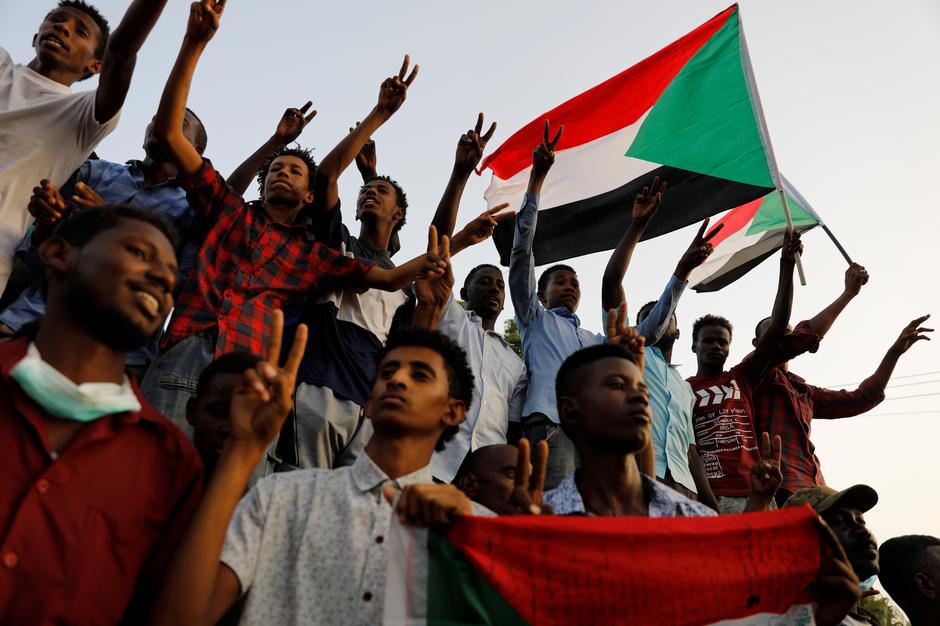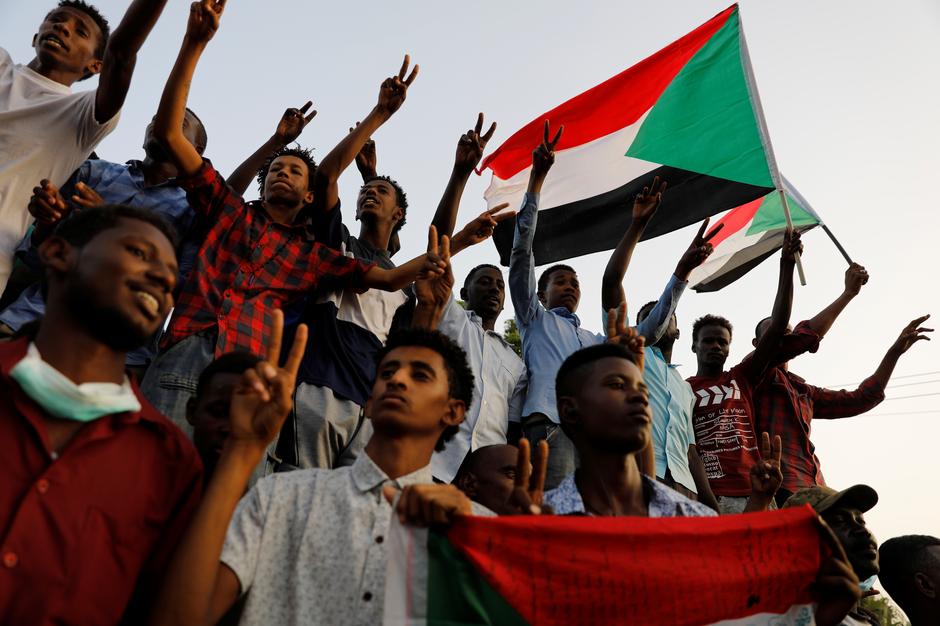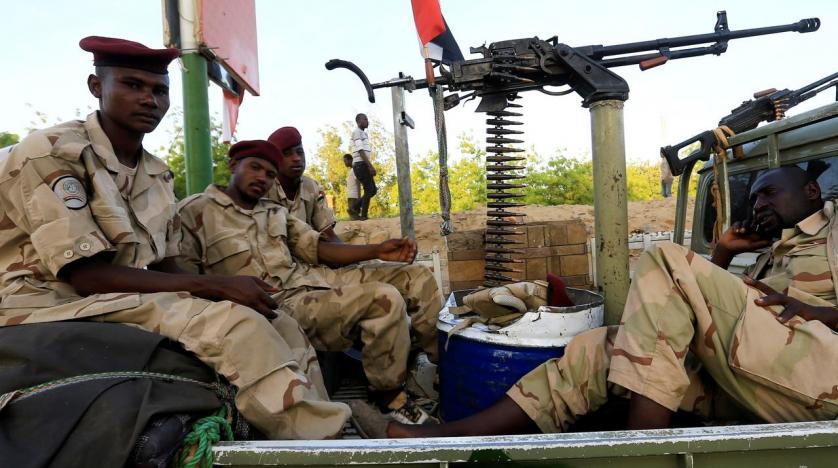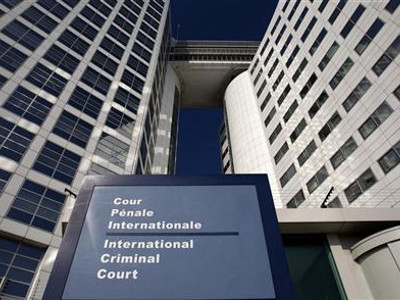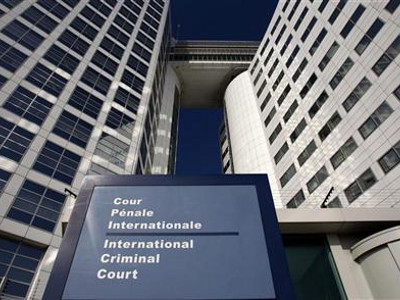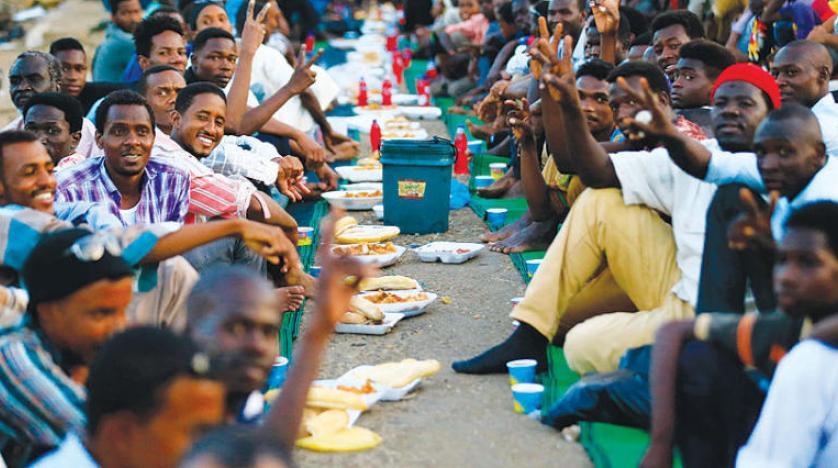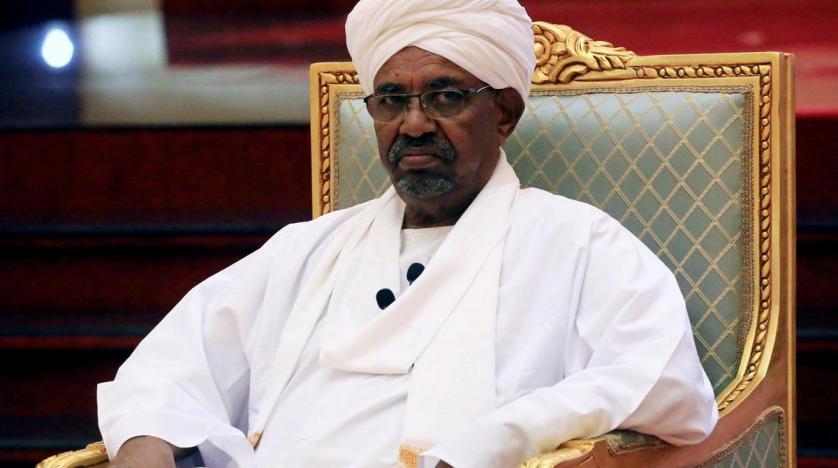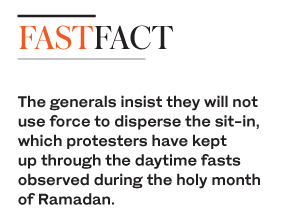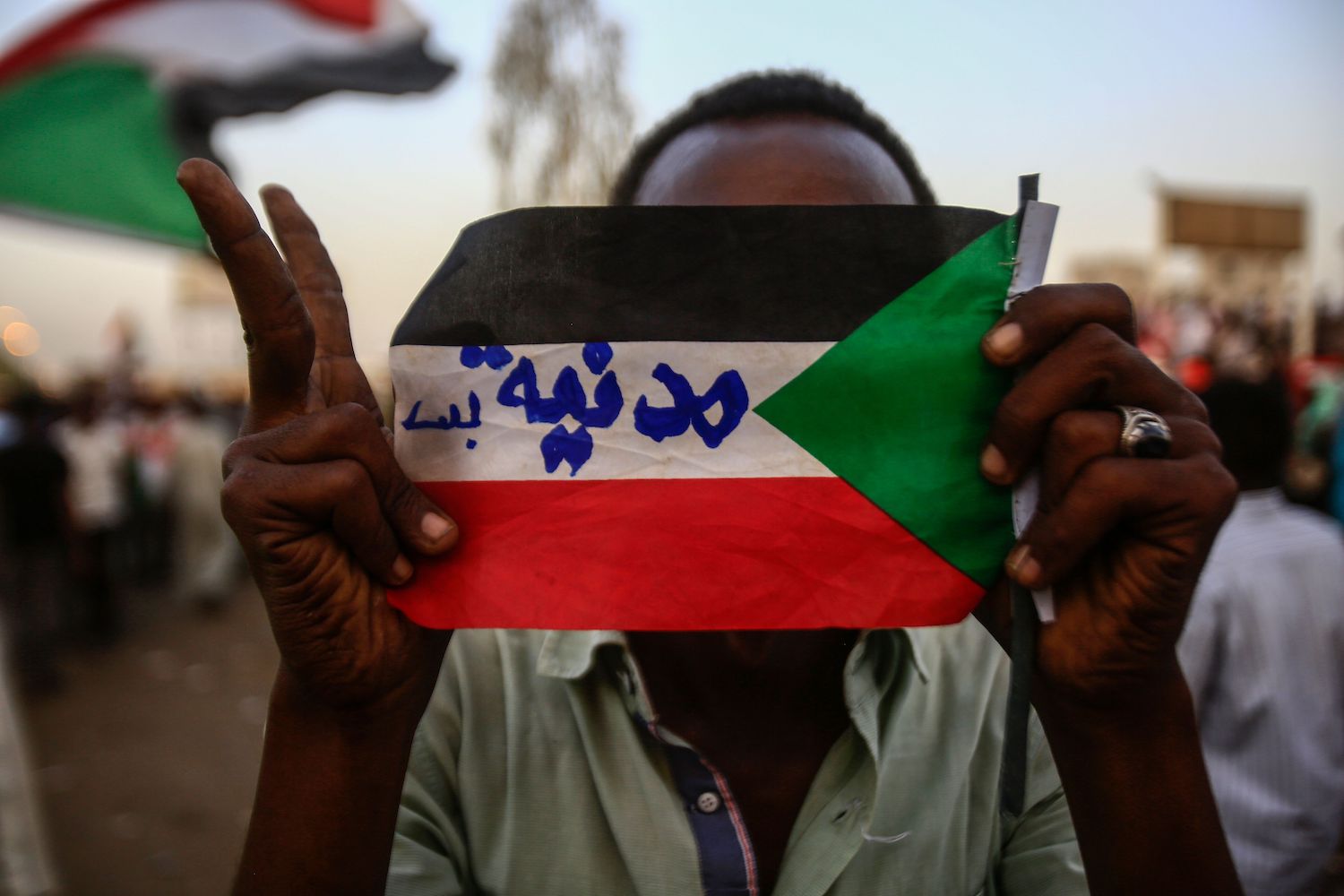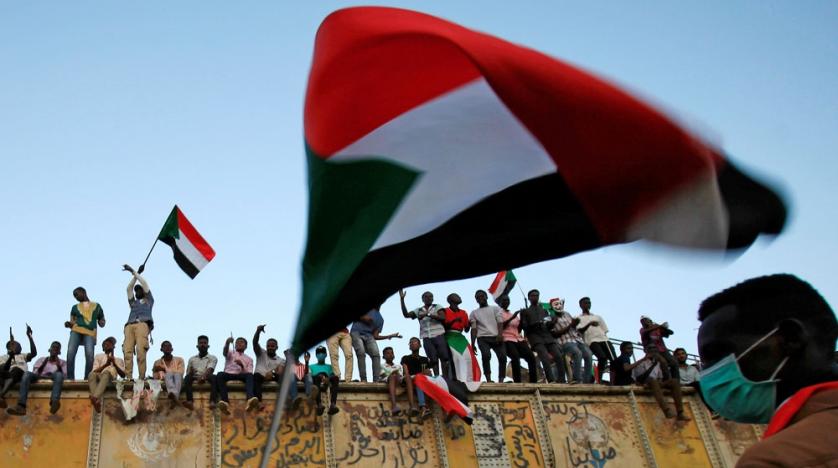Sudan protesters reject army's position on civilian rule
Protesters in Sudan have criticised the ruling military council after it said it would not accept a civilian-majority power sharing council.
A top military council official earlier told the BBC that a transitional supreme council could not be dominated by civilians.
But an opposition spokesman said the military did not understand civilian government.
Talks between the military and the opposition remain deadlocked.
President Omar al-Bashir was ousted from power on 11 April after 30 years.
He was replaced by a transitional military council that promised to relinquish power to civilians within two years - a proposal rejected by protesters.
Demonstrators are continuing their mass sit-in outside military HQ to demand that the army cede control.
Protest leaders accuse the military of not negotiating in good faith and promoting the interests of Mr Bashir.
The military leaders say that they need to be in charge to ensure order and security in the country.
Who's in charge of Sudan?
The seven-member transitional military council led by Lt-Gen Abdel Fattah Abdelrahman Burhan is currently in charge.
Both it and the protesters have agreed that the next government will be made up of technocrats, not well-known politicians or the military, says the BBC's James Copnall in Khartoum.
But there would also be a supreme council, which would be above the government. Its composition and exact powers are still a subject of negotiation.
This supreme council replaces the president, and ensures that the military can retain relevance and power, while the civilians run the actual government business, our reporter says.
Lt Gen Salah Abdelkhalek told the BBC's Newsday programme that the military would insist on having at least half of all seats on the new supreme council: "[It's] a red line, maybe half and half," he said.
Abdelkhalek says the council might consider an equal share of seats with civilians
Opposition leaders - under The Declaration of Freedom and Change Forces (DFCF) umbrella - sent a draft constitutional document on Thursday to
the military council, outlining their proposals for the transition period before elections are held.
The draft, seen by news agency Reuters, also proposes the responsibilities of a cabinet and a 120-member legislature.
The DFCF says it is waiting for the military council to respond.
The African Union revised its 15-day ultimatum set on 15 April for the military leaders to hand over power to civilians. They now have 60 days or face suspension from the continental body.
What does the military want?
James Copnall, BBC News, Khartoum
Lt Gen Salah Abdelkhalek - and the rest of the military council - clearly don't want to see their power eroded.
They fear that if they are a minority in a supreme council, they will simply be out-voted every time.
In fact, stating that he might accept a 50-50 split could be seen as a concession: the military had already suggested that the council should be made up of seven soldiers and three civilians.
Of course, negotiations are often carried out partly through public declarations, and mainly behind closed doors.
In private, there are numerous attempts to break the current deadlock between the military and the protesters.
Elsewhere in the interview, Lt Gen Salah pushed an old line - that without the military chaos would ensue; and repeated a well-worn denial - the armed forces hadn't targeted civilians in the past, he said.
People who lost family members in Darfur, the Nuba mountains, or what is now South Sudan will simply not believe that.
Where is Bashir?
The 75-year-old leader was moved to the high-security Kobar prison in the capital, Khartoum, days after he was deposed.
Mr Bashir came to power in a 1989 coup
Sudan's public prosecutor ordered on Thursday that the former president be questioned on charges of money laundering and financing terrorism.
Authorities found suitcases loaded with more than $351,000, €6m ($6.7m; £5.2m) and five billion Sudanese pounds ($105m) at Mr Bashir's home
during a raid last month.
Mr Bashir is wanted by the International Criminal Court in the Hague for war crimes over the conflict in Sudan's Darfur region.
Protesters criticise Sudan's ruling military council for ruling out a civilian-majority government.
www.bbc.com



